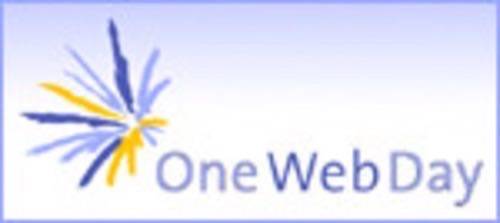Tomorrow, annual event OneWebDay, which began in 2006 as a general celebration of the web, will be devoted to examining broadband as a fundamental necessity of modern life.

Mozilla Foundation founder Mitch Kapor said in a press release, “Ultimately, we want to ensure that anyone who wants it has access to the Internet and, importantly, the skills they need to fully participate. The ability to access and use a fast, affordable, and open Internet is essential for every student, every entrepreneur, and every citizen who wants full access to our government and the democratic process.”
OneWebDay has been working with national organizations prominent in Internet advocacy. In addition to supporting Mozilla’s Service Week, which ended yesterday, OneWebDay is also working with the Media & Democracy Coalition, which will be nationally releasing a report called “A Public Interest Internet Agenda” on September 22 with support from the U.S. Public Interest Research Group (USPIRG) state chapters.
OneWebDay 2008 focused on political participation and civic engagement. But this year’s theme is less about the web as a privilege to be used for social good and more about the web as a public utility on par with electricity and running water – something that should be extended to all citizens to allow them to function in society.
“It’s no accident that there was $7.2 billion allocated for broadband in the stimulus bill,” said OneWebDay executive director Nathaniel James.
“Everyone understands that the Internet is the pathway to economic opportunity, from educational achievement to success on the job. Even finding and applying for a job requires online skills and access.”
James also noted that OneWebDay volunteers were sent into less-wired communities to help create more public Internet access. “This year we are rolling up our sleeves in a big way to install hardware and do trainings that will make a difference right now for people who are getting left behind.”
The organization has provided this video on how we as a culture and society can “overcome the digital divide.”
Events are occuring in around 20 countries and 50 cities around the world. The events map can be seen at the OneWebDay website.







